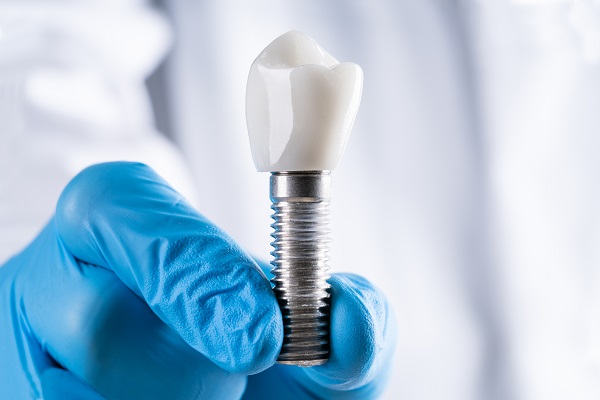 As teeth get older, you may have to consider replacing them with dentures or partial dentures. This can lead to a lot of questions, especially if a person has never owned dentures previously. It is important to understand the current condition of one’s teeth in order to determine the right denture fit. Teeth naturally wear down over time, sometimes cracking or encountering other problems that require their removal. Keeping teeth structurally sound is an essential way to maintain oral health, and getting dentures may be a reasonable next step to restoring a person’s bite.
As teeth get older, you may have to consider replacing them with dentures or partial dentures. This can lead to a lot of questions, especially if a person has never owned dentures previously. It is important to understand the current condition of one’s teeth in order to determine the right denture fit. Teeth naturally wear down over time, sometimes cracking or encountering other problems that require their removal. Keeping teeth structurally sound is an essential way to maintain oral health, and getting dentures may be a reasonable next step to restoring a person’s bite.
Differences between full dentures and partial dentures
Dentures are artificial teeth and gums that can replace missing teeth. Learning the differences between full and partial dentures is key in helping a patient make an educated decision. Though both types of dentures provide the same result, they solve different problems.
Full dentures
When a patient has few or no natural teeth remaining, full dentures are the ideal option. Full dentures are designed to completely replace the missing teeth, giving a patient a brand-new bite with a lower and/or upper arch. A patient with a few natural teeth can ask a dentist about getting them removed and replaced with full dentures or try partial dentures instead.
Types of full dentures
There are two main types of full dentures available for patients. The first is conventional, which requires much more time to create, but once made, should last long into the future. On the other hand, immediate dentures can be placed in the first appointment. These dentures are not meant to last as long and may need several adjustments before fitting properly. It is not uncommon to use these dentures as temporaries while a patient waits for the permanent, conventional dentures to arrive.
Partial dentures
A patient may be a candidate for partial dentures if they still have some natural teeth remaining. Instead of replacing all teeth inside the mouth, partial dentures fill in the gaps where missing teeth once were. The gum and teeth color of the dentures are matched to the patient’s natural ones. Then the dentures are secured to the remaining teeth. While partial dentures can help with structural problems that affect bite and speech, they are also an excellent option for filling in gaps in a smile.
Candidates for dentures
There is no one trait that qualifies a person for dentures. Oftentimes, simply missing teeth is enough to start the conversation about full dentures and partial dentures with a dentist. Denture technology has advanced significantly in the past few decades, providing comfortable, easy appliances on which a patient can rely.
Check out what others are saying about our dental services on Yelp: Dentures and Partial Dentures in Syosset, NY.
Conclusion
Discussing dentures and partial dentures with a dentist is the easiest way to determine if they are right for an individual. Every person has different needs, and a dentist can advise you on the proper course of action. Dentures are simple to take care of and require minimal maintenance. Teeth are an essential part of everyday living, and there is no need to suffer without them for years on end.
Request an appointment or call North Shore Laser Dentistry at 516-364-8899 for an appointment in our Syosset office.
Recent Posts
For some people, the idea of getting dentures can be a scary prospect. If you are in this situation, it may mean that you have lost most or all of your teeth. This could have happened because they were severely decayed or many of them were damaged in a serious accident. Regardless of why you…
Dentures are great but adjusting to them can take some time. If you’re new to them or have just gotten a new set recently, there are several things you can do to get comfortable with them faster and make sure they fit properly in your mouth. Here are some tips to help you feel at…
Preventive dentistry focuses on the prevention and early detection of oral health concerns to help ensure they do not develop or progress to a more severe stage that is harder to treat. One of the primary goals of preventive dentistry is to help patients care for their teeth between check-up visits, which should include proper…


